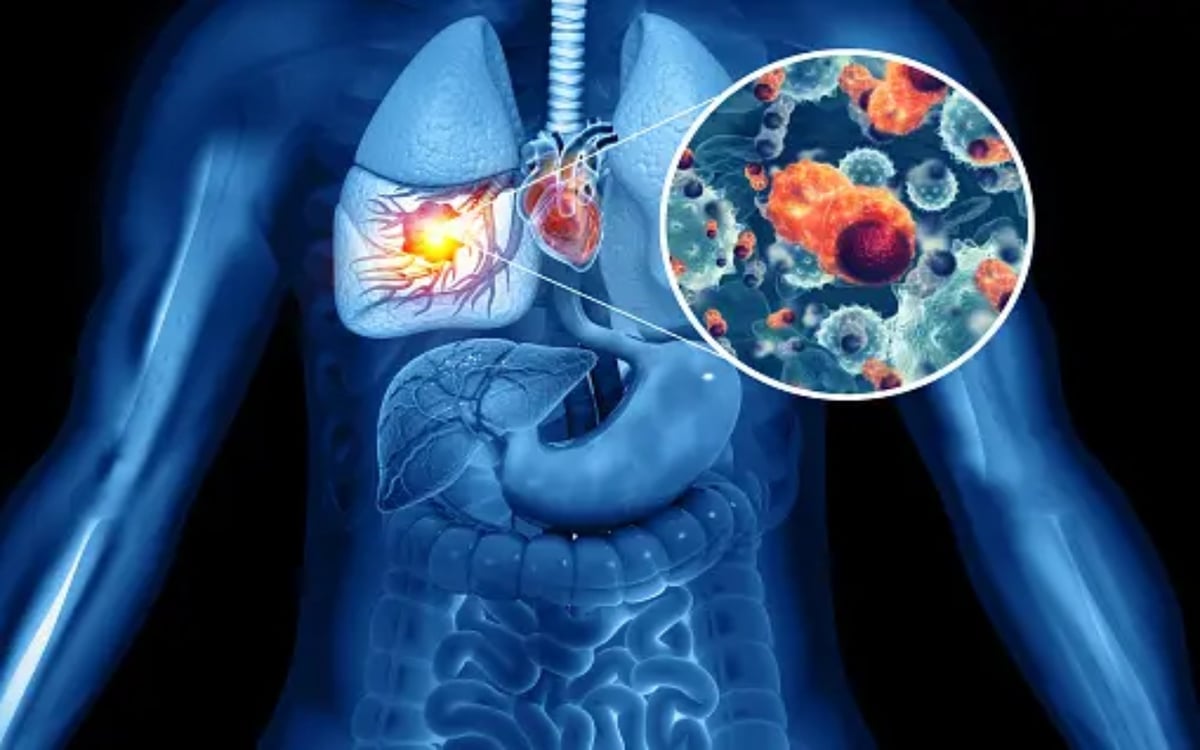
Dr. Sumit Singhania, Pulmonologist, Kokilaben Hospital, Mumbai
Dr Vishal Gupta Physician, GSVM Medical College, Kanpur
It is not that health problems that adversely affect the lungs like asthma, flu and bronchitis occur only in the winter season, but their cases increase in winter. If precautions are taken in winter, these can be avoided. Besides, their control is also possible.
Why do cases increase in winter?
Due to drop in temperature in winter, the respiratory tubes also shrink to some extent. Swelling and contraction in the respiratory tubes is called asthma. More than 80 percent of asthma cases are related to allergies. For people who already suffer from asthma, their problem can get worse if they are careless in winter. Apart from this, due to the drop in temperature in winter, the pollutant particles come down deep into the atmosphere, due to which the risk of triggering asthma problem when inhaled increases.
Allergens are the cause of asthma
Generally, the reasons which increase the problem of asthma are called allergens. Dust, smoke, humidity, moisture, mites in carpet, chemical paint, various foods and above all change in weather etc. can cause allergens. These allergens aggravate or trigger the problem of asthma.
What are its symptoms?
-
Inability to take deep breaths due to difficulty in breathing. Shortness of breath after walking some distance or doing little exertion.
-
Chest tightness, cough (dry or with mucus).
-
Symptoms like whistling sound while exhaling are seen.
-
Asthma patients should protect themselves
-
At this time, asthma sufferers should get vaccinated to prevent flu, because the problem of flu causes asthma related complications in them.
-
Wear a mask while leaving the house to protect yourself from vehicle smoke and other types of air pollutants.
-
Follow a healthy lifestyle. Exercise regularly. Have breakfast, lunch and dinner at a fixed time. Avoid junk foods and fatty foods.
-
Being stressed often can increase the problems of asthma patients, therefore, to remain stress free, it is beneficial to have optimistic thinking and meditation.
-
Some people may also develop asthma due to exercise. If such people have problems, they should consult a doctor. It would be better if a person consults his doctor before exercising.
What are its treatments?
-
Treatment of asthma in children: Nebulization therapy is given in case of asthma in newborn babies. Apart from this, they are given medicine in the form of syrup. Medicines are given to children aged five to 12 years through a meter dose inhaler. Apart from this, they are also given oral dose. Medicines are given to adolescents aged 13 to 17 years through inhalers. Apart from this, they are also given anti-allergic medicines.
-
Treatment of asthma in adults: The results of inhalation therapy are proving to be effective in asthma, because the medicine reaches the lungs directly through the inhaler and has a quick effect. After consulting the doctor, take medicine from inhaler and follow his advice. According to the American Lung Association, immunotherapy is largely effective in asthma caused by allergies. At the same time, broncho thermoplasty is proving to be very effective in the treatment of severe asthma patients.
-
These exercises are beneficial in asthma
Rule of 10-10-20: Breathe as deeply as possible according to the capacity of your lungs. Suppose you are able to inhale for 10 seconds, then try to hold it for the same number of seconds or as much as possible. Then exhale slowly for 20 seconds. Do this exercise for 5 to 10 minutes daily.
-
Pranayama and Yogasana: Anulom-Vilom Pranayam is beneficial for asthma patients. This pranayama is ‘Alternate Nostril Breathing’ i.e. under this, the left and right nostrils are used alternately for inhaling and exhaling. Among yoga asanas, Bhujangasana and Surya Namaskar etc. are beneficial. It would be better to do pranayama and yoga asanas only after consulting a yoga expert.
-
Laughing and singing: Singing songs and laughing openly also exercises the lungs. In this sense, laughing and singing also keeps the lungs healthy. While singing, one has to hold the breath, which is a kind of exercise for the lungs.
What to do before an asthma attack
Use of controller inhaler: Use the controller inhaler regularly as directed by your doctor. Controller inhalers reduce swelling and narrowing of the airways. By controlling the symptoms of asthma, they eliminate the risk of attacks to a great extent. Even if the sufferer is not feeling the side effects of asthma, he or she should continue using the controller inhaler. Just like diabetic patients take their medicines every day, even if their blood sugar is controlled.
Reliever inhaler: These regulate the functioning of the lungs and bring the patient out of emergency. These days a combination of reliever and controller inhaler is also available.
Be careful of flu in this season
In our country, about 40 thousand people die every year due to flu or influenza. Winter is called the flu season, due to which flu viruses proliferate more in cold temperatures than in other seasons and remain active for a longer time.
Know the symptoms of flu
High fever is accompanied by sore throat, runny nose, sometimes blocked nose, difficulty in breathing, chills, dry cough, body ache and joint pain, headache problem in many patients, whereas flu in children. When suffering from diabetes, they suffer more from diarrhea.
protect yourself like this
-
This disease spreads to other people through droplets spread through the air when an infected person coughs and sneezes. In such a situation, the infected person should cover his mouth with a handkerchief while coughing or sneezing.
-
Generally children and elderly people are more victims of flu. Because the immune system of both of them is usually not strong. In such a situation, it is necessary to protect them from winter. Children and elderly people must get flu vaccine after consulting a doctor.
Conversation: Vivek Shukla

